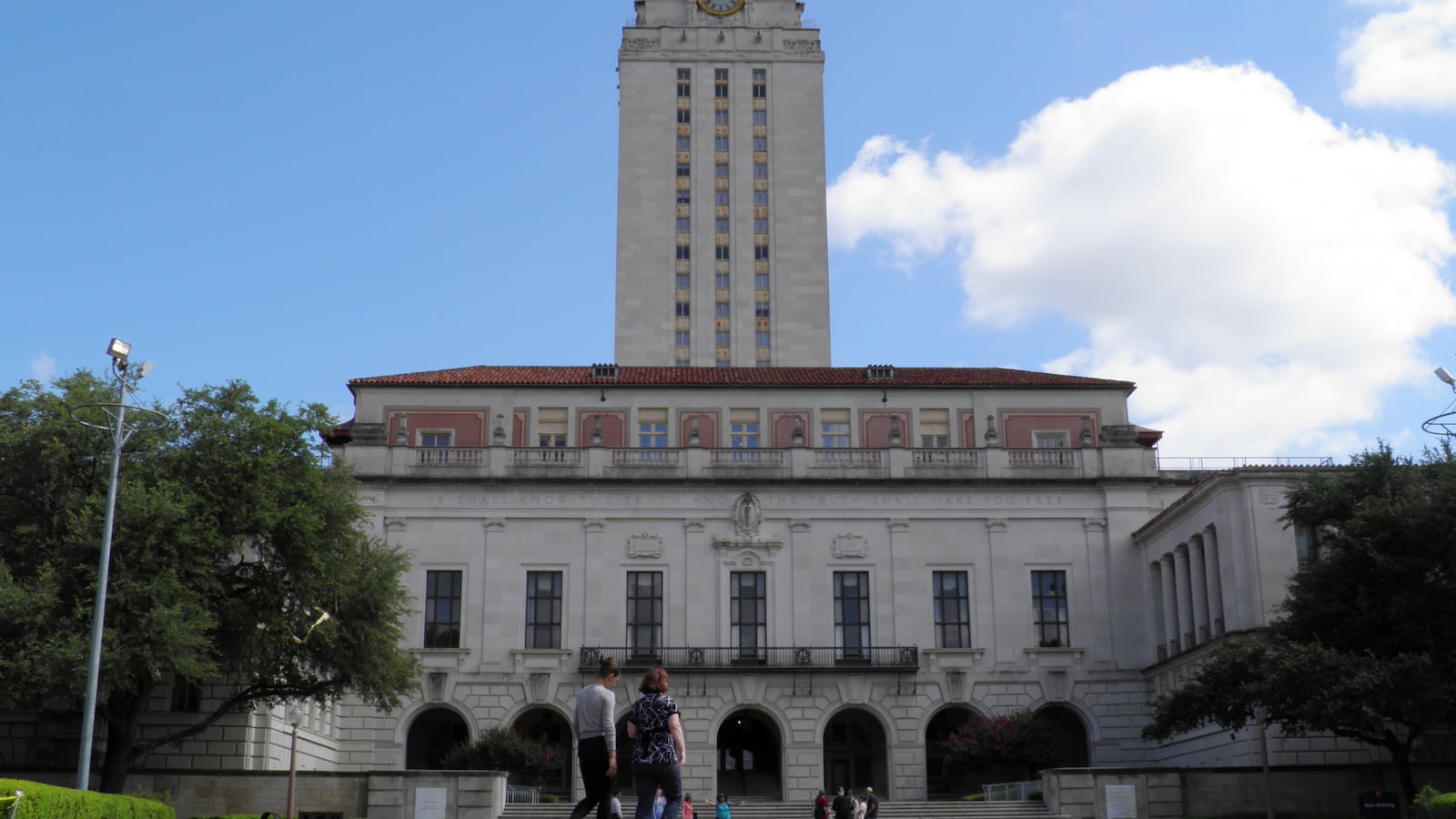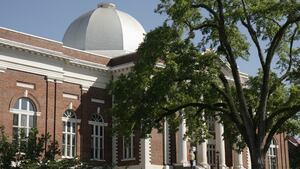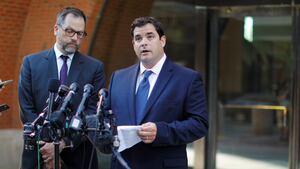A group of students at the University of Texas are calling for the firing of a classics professor who has written extensively on “pederasty”—socially acknowledged romantic relationships between adult men and teen boys—in ancient Greece.
Students claim Thomas Hubbard’s academic work “advocates for violent crime against teen boys” and is being celebrated in online communities that promote pedophilia. In writings reviewed by The Austin American-Stateman, which first reported on the clash, the professor of classics at UT’s College of Liberal Arts calls physical relationships between men and boys in ancient societies a “proper learning experience.”
Separately, in 2010, Hubbard reportedly wrote an article analyzing sexual consent among young boys in antiquity, calling current age of consent laws a “sad by-product” of a “naive and self-righteous era” comparable to prohibition.
“Contemporary American legislation premised on children’s incapacity to ‘consent’ to sexual relations stems from outmoded gender constructions and ideological preoccupations of the late Victorian and Progressive Era,” Hubbard reportedly wrote in the peer-reviewed journal Thymos: Boyhood Studies. “We should consider a different ‘age of consent’ for boys and girls.”
A group called Students for Safety issued a press release last month which claimed that Hubbard “has used his position to further a community of individuals hoping to prey on underage boys” and that his writings “encourage these illicit acts.”
“An individual who advocates for violent crime against teen boys had no business teaching the leaders of tomorrow,” said the release. “It is clear to us that the University of Texas does not have its students’ safety, health, and welfare in mind.”
“We refuse to stand by while this man uses his status to promote pedophilia,” said the group.
Sarah Blakemore, one of the students leading the charge against Hubbard, told The Austin American-Stateman that the professor’s “academic license” should not be tolerated at a public university since it promotes “breaking the law.”
Citing that Hubbard’s work has been positively received in online communities that promote relationships between men and young boys—including the North American Man/Boy Love Association (NAMBLA)—Blakemore added: “If the world’s largest pedophile advocacy group endorsed my book, I would reconsider my life.”
Hubbard did not immediately respond to The Daily Beast’s requests for comment. In a statement to The Austin American-Stateman, the classics professor dismissed the concerns of a “small handful of students,” stating the outcry was not “based on any careful examination of the full spectrum of my writing on the subject.” He added his works do not enforce NAMBLA’s “idiosyncratic approach to legal reform and do not share the sexual orientation of its members.”
After the Students for Safety press release circulated to UT students on social media, Hubbard defended his work in a written Q & A, claiming that pedophilia is distinct from pederasty and suggesting there “is no evidence of adverse mental health effects in countries with lower ages of consent.”
“I write mainly about ancient Greece, where ‘pedophilia’ (as defined by psychiatry’s Diagnostic & Statistical Manual, 5th Edition) is not part of the cultural record,” said Hubbard. “I do discuss the very different phenomenon of ‘pederasty’—romantic courtship of adolescent males, which was practiced in complex historical cultures as diverse as Ancient Greece, Han-dynasty China, Renaissance Florence, and Samurai-era Japan, as well as some Melanesian, Asian, and African tribal cultures.”
He added: “How teen sexuality should be regulated and how legal violations should be punished are legitimate areas of research and debate among scholars and public policy professionals. Historical and cross-cultural evidence have a place in such discussions.”
University spokesperson Shilpa Bakre told The Daily Beast on Thursday “the university condemns ideas or world views that exploit or harm individuals” but that “the study of controversial and even offensive ideas is protected by academic freedom and the First Amendment—as is the right of others to strongly disagree with and draw attention to those ideas.”
“If someone is alleged to violate university policy or takes actions that threaten the safety of the campus community, the university will respond swiftly, investigating allegations thoroughly and imposing sanctions as warranted,” Bakre added.
The backlash to Hubbard’s writing comes after weeks of protests on campus by student organizers who have called for the university to fire professors with histories of sexual misconduct.
Student organizers have formed a Coalition Against Sexual Misconduct, which has advocated for the firing of English associate professor Coleman Hutchison and philosophy and integrative biology professor Sahotra Sarkar, who were both previously punished by the university for alleged sexual-misconduct policy violations. Sarkar was suspended in 2017 for one semester after students reported that he asked some to pose for nude pictures, invited others to swim with him at a nude beach, and led “sexual” conversations with students, The Texas Tribune reported.
Hutchison, meanwhile, allegedly made “inappropriate remarks” to his graduate students and then reportedly engaged in a consensual relationship with one. He was subsequently banned from independently supervising graduate students for two years.
Despite ongoing outrage from students, both men are still slated to teach undergraduate courses in January.
To that end, protesters have staged sit-ins outside administrators’ offices, stormed a class, circulated a petition, and issued a list of demands—including a request for the university to publicly name all professors found to have committed misconduct, The Tribune reported. As of Thursday afternoon, about 1,291 people signed on to the list of demands.
Lynn Huynh, a student with The Coalition Against Sexual Misconduct, told The Daily Beast on Thursday that the group did not wish to issue an official statement about Hubbard over fear of legal retaliation but that “faculty/staff who have committed sexual misconduct are not individualized, singular moments of wrongdoing.”
“What the coalition stands and advocates for is a complete restructuring of a system that has obviously failed to protect students,” Huynh said. “We demand accountability, transparency, and action from not just our university, but all institutions everywhere addressing the sexual misconduct committed by people who abuse their power against more vulnerable populations.”
A fourth sit-in is reportedly planned for Friday.
The women and gender studies and advertising junior added Friday’s sit-in will “serve as a reminder to the student body and administration that sexual misconduct is still pressing issue” at the university and will garner a majority of the approximately 50-person coalition.
The university has reportedly released the names of faculty and employees who violated campus misconduct policies through mid-2017 and posted sexual misconduct statistics online. In response to the student movement, it has also formed a campus misconduct working group with students and employees and has hired a law firm to review its policies.
In addition, University of Texas President Gregory Fenves and Executive Vice President and Provost Maurie McInnis announced this week that they will attend a student-led forum on the issue in January, where between 150 and 200 students are expected to participate, reported The Daily Texan. The school said on Thursday that administrators have met with student organizers several times since the demonstrations began.
University of Texas spokesperson J.B. Bird told The Daily Beast on Thursday that the school’s open records office is currently compiling an updated summary of all sexual misconduct cases at the university since November 2017, which will be available next week.











